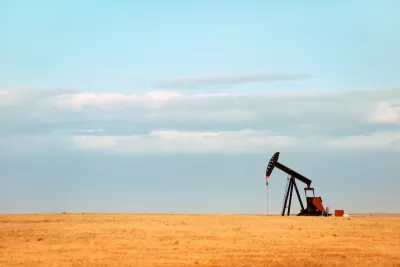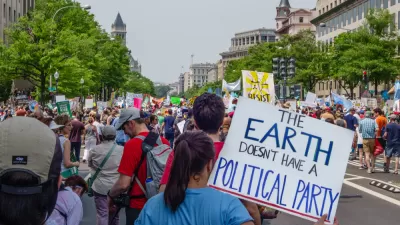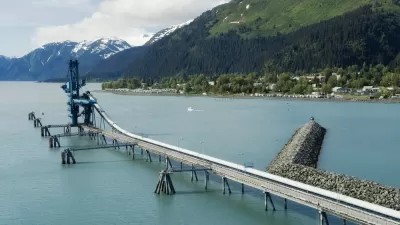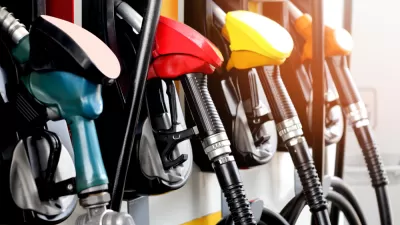Samantha Gross, the director of the Energy Security and Climate Initiative at the Brookings Institution, argues that the key to reducing emissions is to do the hard work of reducing oil demand rather than focusing on ending U.S. oil drilling.

Big Oil, “whose past behavior makes them easy targets for attacks,” and domestic oil production are major targets for environmental organizations in the United States that are fighting climate change, writes Samantha Gross, previously a director of the Office of International Climate and Clean Energy at the U.S. Department of Energy, for the Brookings' Energy Security and Climate Initiative on September 14.
However, this paper argues that the best way to reduce U.S. greenhouse gas (GHG) emissions from the oil industry is to reduce oil demand, rather than focusing on reducing domestic oil production.
Her research paper is a 36-minute read and the source article for this post.
This is a more difficult task than protesting particular projects or companies; it involves changing the system through which we use energy. In the case of oil, it primarily involves changing how we fuel our transportation system — moving from gasoline and diesel to electricity for most of our on-road transport.
It could also involve redesigning our cities and lifestyles, making more efficient forms of transport workable and attractive.
Furthermore, reducing domestic oil production does nothing to reduce emissions, adds Gross. Rather, the main result is to increase oil imports.
Oil is plentiful, fungible, and easy to transport, and other producers can easily step in to meet oil demand if the United States does not. U.S. energy security will also suffer if the United States reduces domestic oil production faster than demand.
“Offshoring” oil production to other countries only adds to emissions due to the transport requirements. Gross notes that “[m]any foreign sources of oil inherently require more energy in their production, resulting in greater emissions of GHGs and other pollutants than production here in the United States.”
This correspondent would add that many of the less-developed foreign oil exporters have few of the environmental safeguards required by states, particularly California, and U.S. regulatory agencies.
[Related: Election 2024: California Oil Drilling Referendum]
Case in Point: Alaska's Willow Project
“On March 13, the Biden administration approved one of the largest oil developments on federal land, a decision that came after months of intense lobbying and over objections that the project, known as Willow, would undermine U.S. efforts to phase out fossil fuels worldwide,” reported Timothy Puko for The Washington Post on March 17.
[Related in Planetizen: Judge Halts Controversial Alaska Drilling project, August 22, 2021.]
Backlash from environmental groups was instantaneous.
“The Biden administration has approved a gargantuan Alaskan oil project that threatens to unleash a global carbon bomb,” stated an Earthjustice press release on March 13.
We’ve been fighting Willow since it was first proposed, and this isn’t the end. Earthjustice has filed a lawsuit on behalf of conservation groups to keep this destructive project from moving forward.
[April 3 update from Earthjustice: “A federal judge today ruled in favor of oil giant ConocoPhillips by denying a motion [pdf] for preliminary injunction brought by environmentalists as part of a lawsuit [pdf] challenging the Willow project in Alaska’s Western Arctic.”]
Is the drilling project a carbon bomb?
“Describing the Willow project as a ‘carbon bomb’” assumes that if the Willow project does not happen, no other producer will pick up the slack," argues Gross.
But that assumption is wrong. Instead, the avoided U.S. production would be added to the global market by producers in some other country. The United States would lose the security benefit of producing the fuel domestically without a reduction in global greenhouse gas emissions.
As long as there is demand for the oil that the project aims to produce, someone will produce it. If not at this project, then at another.
LNG exports – a ‘climate megabomb?’
“Environmentalists are calling on the Biden administration to block dozens of liquefied natural gas export ‘megabomb’ for the climate,” writes Maxine Joselow for The Washington Post's 'Climate 202' newsletter on Oct. 17, 2023.
A different fossil fuel but the same apocalyptic rhetoric applied by environmentalists who appear unable to distinguish energy supply from demand in their zeal to tackle the climate crisis.
FULL STORY: Reducing US oil demand, not production, is the way forward for the climate

Planetizen Federal Action Tracker
A weekly monitor of how Trump’s orders and actions are impacting planners and planning in America.

Map: Where Senate Republicans Want to Sell Your Public Lands
For public land advocates, the Senate Republicans’ proposal to sell millions of acres of public land in the West is “the biggest fight of their careers.”

Restaurant Patios Were a Pandemic Win — Why Were They so Hard to Keep?
Social distancing requirements and changes in travel patterns prompted cities to pilot new uses for street and sidewalk space. Then it got complicated.

Platform Pilsner: Vancouver Transit Agency Releases... a Beer?
TransLink will receive a portion of every sale of the four-pack.

Toronto Weighs Cheaper Transit, Parking Hikes for Major Events
Special event rates would take effect during large festivals, sports games and concerts to ‘discourage driving, manage congestion and free up space for transit.”

Berlin to Consider Car-Free Zone Larger Than Manhattan
The area bound by the 22-mile Ringbahn would still allow 12 uses of a private automobile per year per person, and several other exemptions.
Urban Design for Planners 1: Software Tools
This six-course series explores essential urban design concepts using open source software and equips planners with the tools they need to participate fully in the urban design process.
Planning for Universal Design
Learn the tools for implementing Universal Design in planning regulations.
Heyer Gruel & Associates PA
JM Goldson LLC
Custer County Colorado
City of Camden Redevelopment Agency
City of Astoria
Transportation Research & Education Center (TREC) at Portland State University
Camden Redevelopment Agency
City of Claremont
Municipality of Princeton (NJ)





























